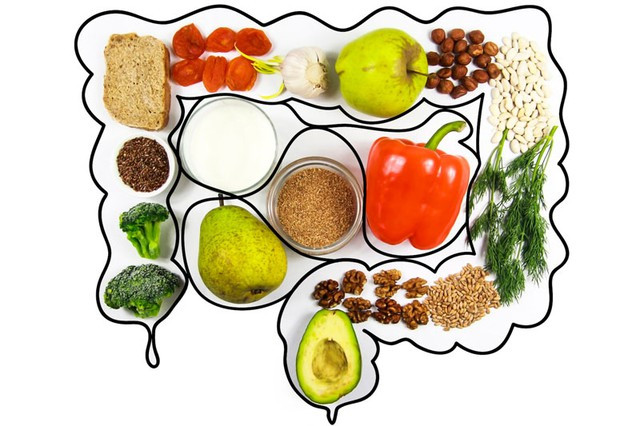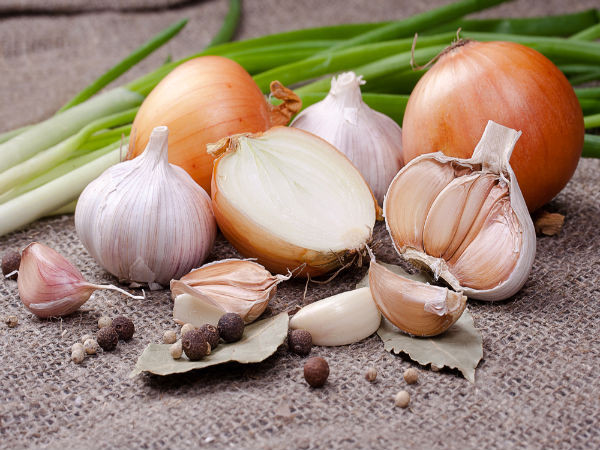Foods rich in prebiotic fiber are beneficial for gut health.
Many people are aware of the role of fiber-rich foods and probiotic foods in gut health. However, compared to probiotic foods such as yogurt, prebiotic fiber-rich foods are still underrated and often lacking in many people's diets.
1. What are prebiotics?
Prebiotics are indigestible fiber compounds that are broken down by gut microflora. Like other fiber-rich foods, prebiotic compounds pass through the upper part of the digestive tract undigested because the human body cannot completely break them down. Once they pass through the small intestine, they reach the colon, where they are fermented by gut microflora.
Today, when researchers refer to “fiber,” they are not just talking about one substance, but about a whole family of different chemical compounds found in foods. The best known prebiotics are types of fiber called fructooligosaccharides, inulin, and galactooligosaccharides.
Initially, prebiotics were not classified as prebiotic fiber compounds, but recent research has shown that these compounds act like other forms of fiber, being fermented by anaerobic bacteria in the large intestine.

2. Benefits of prebiotics for gut health
In studies, consuming foods rich in prebiotics has shown many health benefits including: reduced risk of cardiovascular disease, reduced stress response, better hormonal balance, higher immune function, reduced risk of weight gain, reduced inflammation, and good gut health.
Simply put: Prebiotics “feed” the probiotics, or beneficial bacteria, in your gut. When prebiotics pass through your stomach without being broken down by stomach acid or digestive enzymes, they bring about positive changes in your digestive tract and other organs. Essentially, prebiotic compounds become a source of nutrition, or “fuel,” for the beneficial bacteria in your gut.
While prebiotics are substances fermented by beneficial bacteria in the gut and used as a fuel source to promote gut flora health, probiotics are defined as live microorganisms that can confer health benefits to the host, from improved immunity to better brainpower.
Prebiotics work together with probiotics (selective fermented ingredients that produce beneficial bacteria in the gut) to produce specific changes, both in the composition and activity of the digestive system. They play a fundamental role in protecting health by maintaining the balance and diversity of intestinal bacteria by promoting the growth of beneficial bacteria such as Lactobacilli and Bifidobacteria.
Because gut health is tied to so many other body functions, prebiotics and probiotics working together are important for fighting inflammation and reducing disease risk.
Several human studies have demonstrated that consuming prebiotic foods can lead to significant changes in the composition of the gut microbiome that improve immunity. This effect is associated with improvements in biomarkers and immune system activity, including reduced levels of certain cancer-promoting enzymes and bacterial metabolites in the gut.
Prebiotics combined with probiotics also help boost immunity by improving nutrient absorption and lowering gut pH to prevent the growth of pathogens and harmful bacteria.
Prebiotics can help reduce inflammation, which is thought to be one of the root causes of many chronic diseases. In fact, people who consume more prebiotics and fiber tend to have healthier cholesterol levels, which can help reduce the risk of heart disease.
Research also shows that a healthier gut environment can suppress autoimmune responses, help the body metabolize nutrients more efficiently, and regulate immune functions that control how and where the body stores fat (including in the arteries).

3. Foods rich in prebiotics are good for gut health
While probiotics are often found in fermented foods such as yogurt, kefir, kimchi, etc., prebiotics are often found in some vegetables, whole grains, and sources of resistant starch (such as unripe bananas).
Some of the best food sources of prebiotics, especially when eaten raw, include: chicory, artichokes, garlic, leeks, onions, asparagus, unripe bananas…
Some other foods that also contain prebiotics include apples with the skin on and foods containing isolated carbohydrates such as raw honey, whole wheat, barley, oatmeal and whole corn.
Some additional sources of prebiotics are added to some foods as supplements, but according to nutritionists, it is best to get prebiotics from natural food sources. These foods not only provide a concentrated amount of prebiotics but are also richer in vitamins, minerals, and antioxidants that are good for your health.




